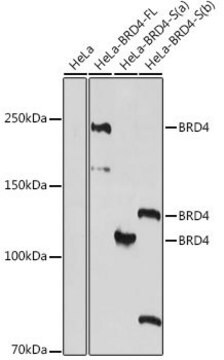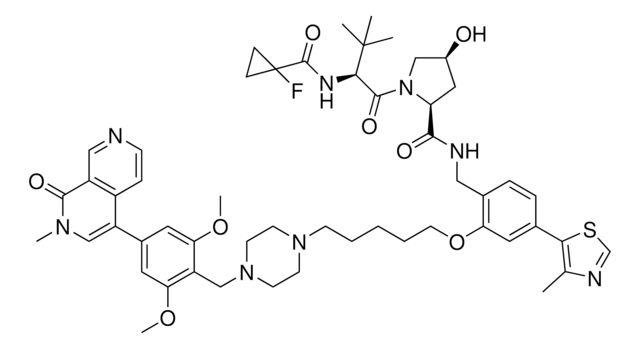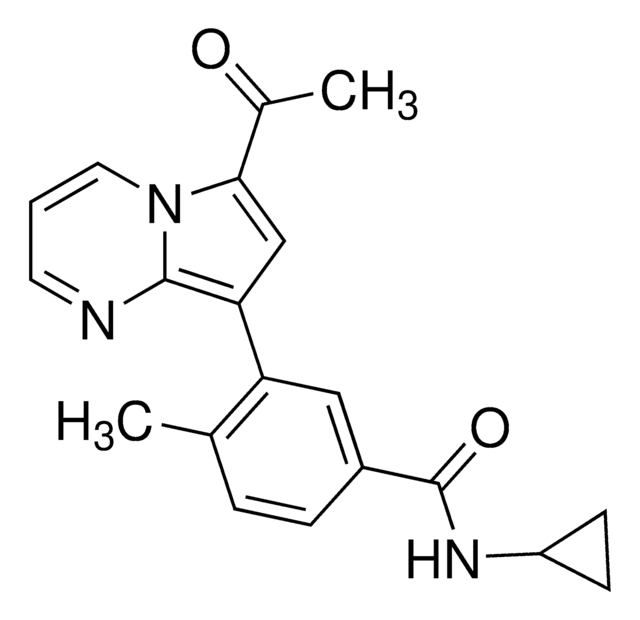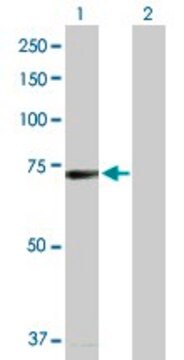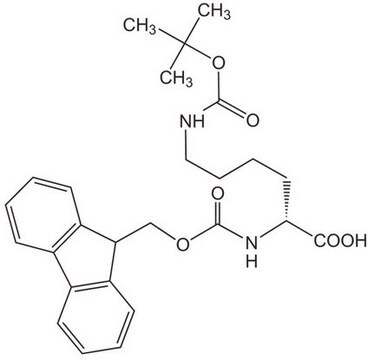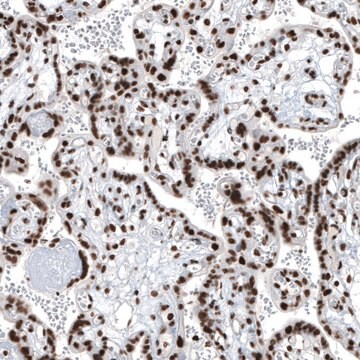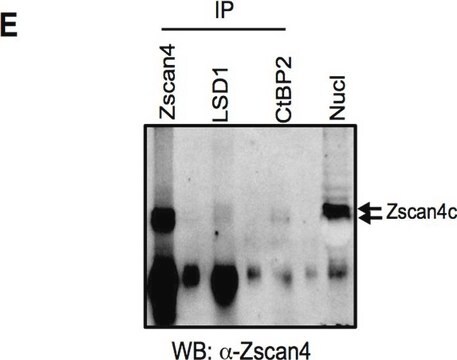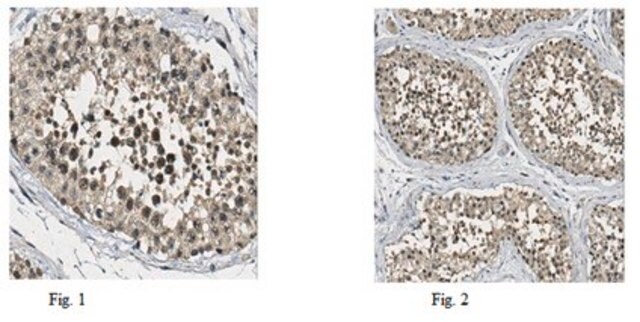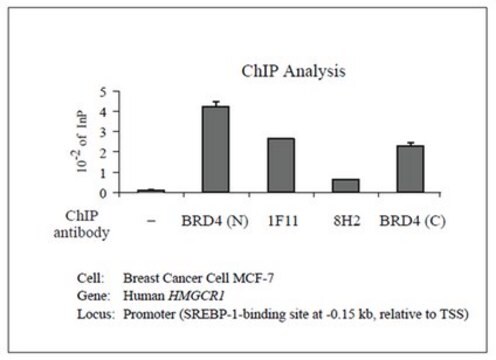ABE1391
Anti-Brd4 Antibody
serum, from rabbit
Synonyme(s) :
Bromodomain-containing protein 4, Mitotic chromosome-associated protein, MCAP, Brd4
About This Item
Produits recommandés
Source biologique
rabbit
Niveau de qualité
Forme d'anticorps
serum
Type de produit anticorps
primary antibodies
Clone
polyclonal
Espèces réactives
human
Réactivité de l'espèce (prédite par homologie)
mouse
Technique(s)
ChIP: suitable
immunocytochemistry: suitable
western blot: suitable
Numéro d'accès NCBI
Numéro d'accès UniProt
Conditions d'expédition
dry ice
Modification post-traductionnelle de la cible
unmodified
Informations sur le gène
mouse ... Brd4(57261)
Description générale
Spécificité
Immunogène
Application
Epigenetics & Nuclear Function
Epigenetics & Nuclear Function
Chromatin Biology
Histones
Chromatin Immunoprecipitation (ChIP): A representative lot of this antibody was reported to work in ChIP using chromatin from NIH3T3 cells. See Mochizuki, K., et al. (2008) and Anup, D., et al. (2009).
Immunocytochemistry: A representative lot of this antibody was reported to work in ICC. See Anup, D., et al. (2000) and Anup, D., et al. (2009).
Qualité
Western Blotting Analysis: 1:1,000 dilution of this antibody detected Brd4 in 10 µg of HEK293 cell lysate.
Description de la cible
This antibody primarily detects 100 kd short form of Brd4 and to lesser extent larger 180 kD form (see Alsarraj J., et al. (2013 for additional details on performance of this antibody).
Forme physique
Stockage et stabilité
Handling Recommendations: Upon receipt and prior to removing the cap, centrifuge the vial and gently mix the solution. Aliquot into microcentrifuge tubes and store at -20°C. Avoid repeated freeze/thaw cycles, which may damage IgG and affect product performance.
Autres remarques
Clause de non-responsabilité
Vous ne trouvez pas le bon produit ?
Essayez notre Outil de sélection de produits.
En option
Code de la classe de stockage
10 - Combustible liquids
Classe de danger pour l'eau (WGK)
WGK 1
Certificats d'analyse (COA)
Recherchez un Certificats d'analyse (COA) en saisissant le numéro de lot du produit. Les numéros de lot figurent sur l'étiquette du produit après les mots "Lot" ou "Batch".
Déjà en possession de ce produit ?
Retrouvez la documentation relative aux produits que vous avez récemment achetés dans la Bibliothèque de documents.
Notre équipe de scientifiques dispose d'une expérience dans tous les secteurs de la recherche, notamment en sciences de la vie, science des matériaux, synthèse chimique, chromatographie, analyse et dans de nombreux autres domaines..
Contacter notre Service technique